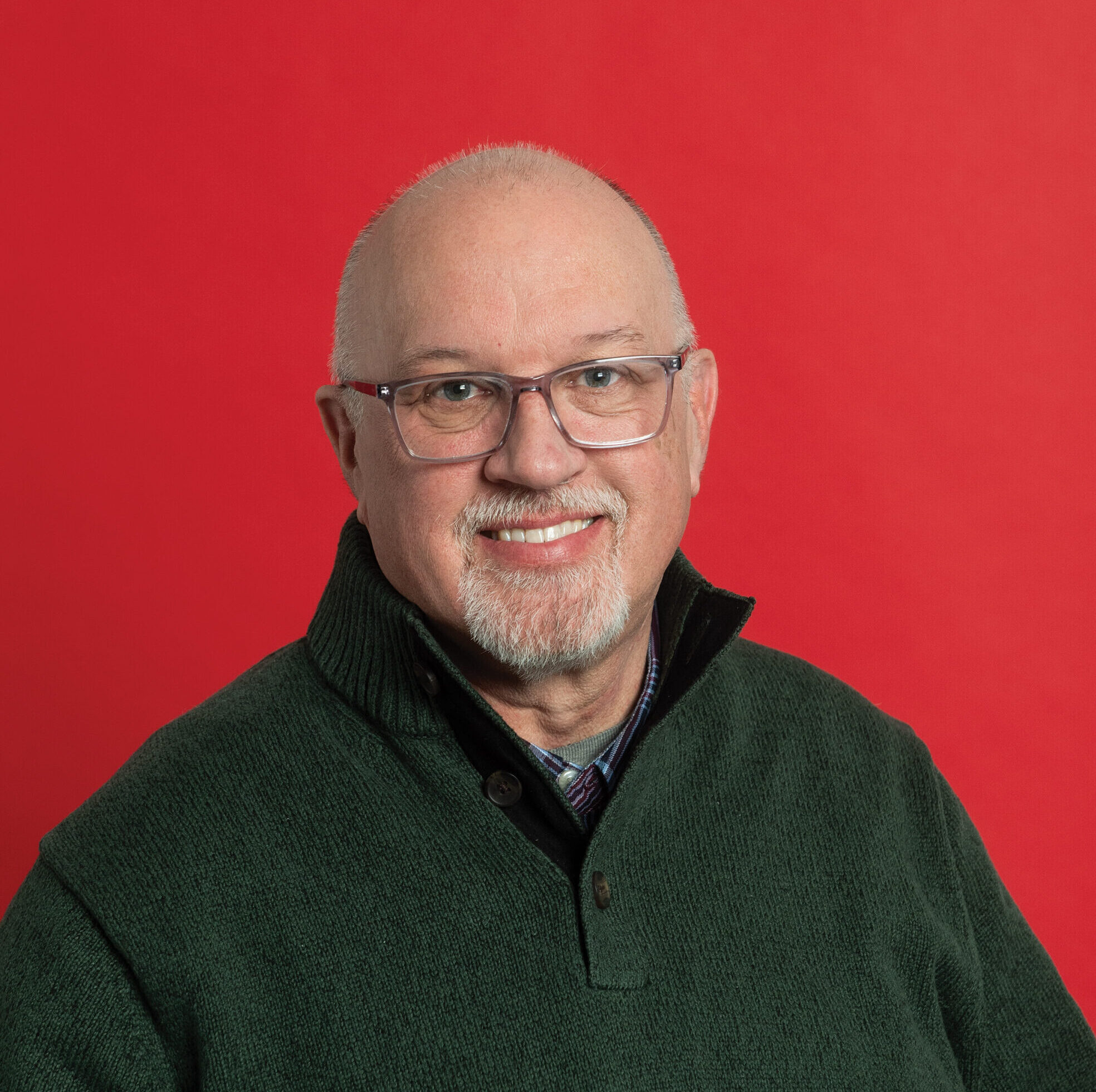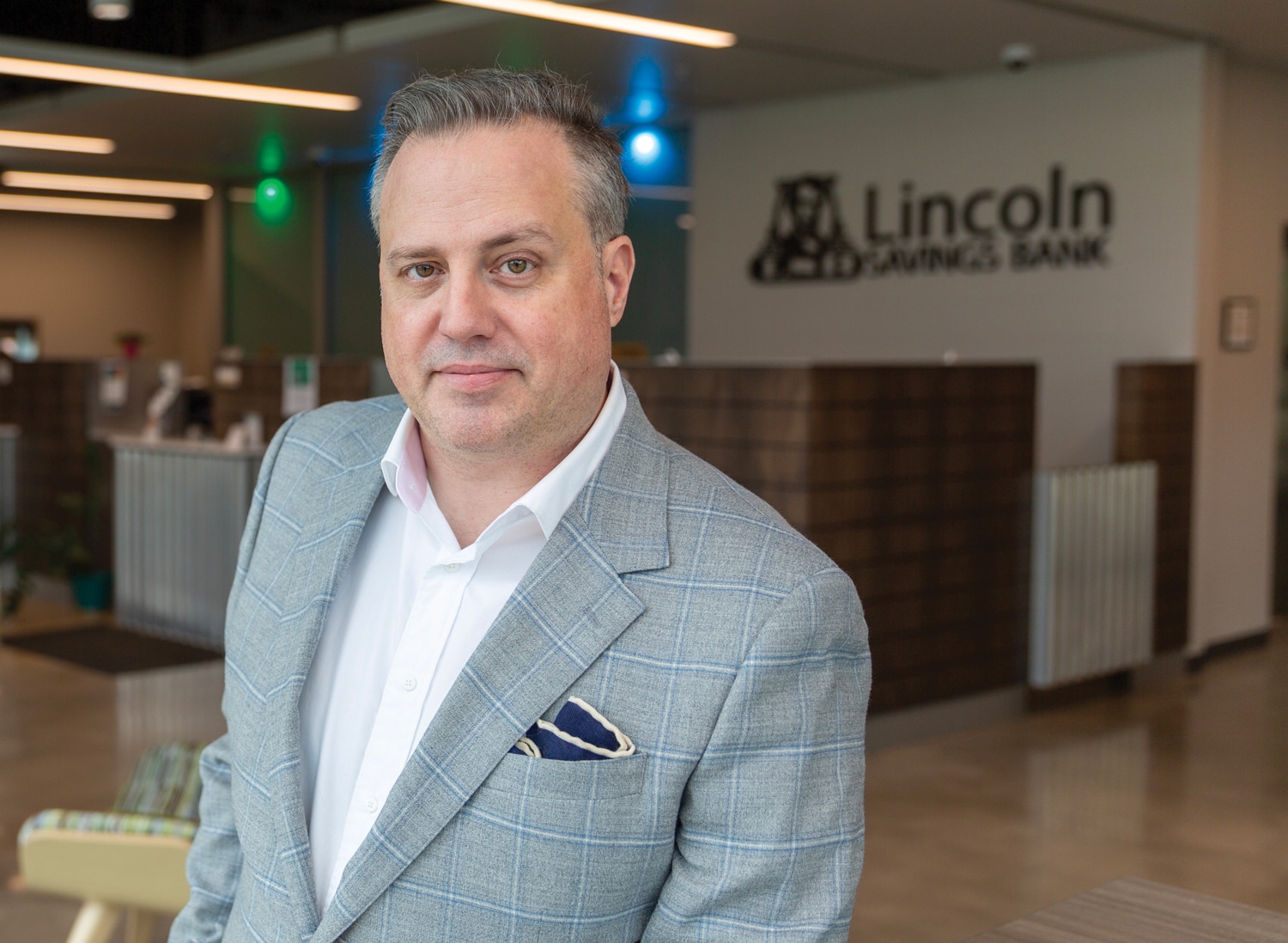Meet Lincoln Savings Bank’s new CEO Sean Willett

Michael Crumb May 10, 2024 | 6:00 am
6 min read time
1,427 wordsAll Latest News, Banking and Finance, Business Record InsiderSean Willett took over the helm of Waterloo-based Lincoln Savings Bank just before the start of the year.
Before he joined Lincoln Savings Bank, he was the chief administrative officer for a community bank in western and central New York. Prior to that, Willett was in investment banking at firms such as Morgan Stanley and JP Morgan. While Willett doesn’t have a traditional community banking background, he says his experience prepared him well for his new role and allows him to bring a fresh perspective to Lincoln Savings Bank.
According to Willett, western and central New York’s strong manufacturing sector is similar to Iowa’s, and that environment, along with his prior work, will allow him to build relationships and stay focused on the things that will help Lincoln Savings Bank grow.
The company sees the Des Moines market as a growth opportunity. “I’m really focused on the opportunities we have to be a very strong community bank, locally rooted … and continue to build upon and drive growth. I would say prudent growth. I’m not focused on asset size, but really just on profitability and running a very successful core franchise that does the very basic things well. So serving our consumer, small business and commercial. I think if we get those things right, we’re getting after it.”
The Business Record recently sat down with Willett to talk about his strategy for Lincoln Savings Bank, current challenges in monetary policy and lending, and the role of a community bank today.
This Q&A was lightly edited for brevity and clarity.
Share more about the different perspective you bring to Lincoln Savings Bank.
Growing up primarily in investment banks, you learn to be commercially compliant, and to be successful, you have to take on some risks — but prudent risks. And to be thoughtful. And from the standpoint of having strong relationships with your stakeholders. Not only your shareholders but also the clients you serve but also regulatory relations. I have a pretty strong regulatory affairs background so I have benefited from understanding the dynamic of how to build relationships with those key stakeholders and how to maximize those relationships. I want to have a dynamic of, if we’re going to do something, that you understand fully why we’re going to do what we’re doing and how it aligns with our corporate strategy. If I’m going to deviate from that in any way, I’m going to have a conversation with you first, right? So that we will have an open dialogue. I want to be a good stakeholder to you, just like you want to be a good stakeholder to me, and we have that bilateral relationship.
What are some challenges and opportunities community banks are facing in the year ahead?
Monetary policy has certainly been a challenge. We went from an environment of low interest rates and then the velocity at which rates rose created compression on margins for banks of all sizes. If you look at it from the standpoint of smaller banks, it’s a lot easier for larger banks to acquire deposits on a more cost-effective basis and to be able to deploy those deposits. We’re fighting the battle of now we have to acquire deposits and how do we do that cost-effectively, and then where am I going to rotate those deposits? That in itself is a challenge. If I look at the marketplace, traditionally you would look at commercial real estate. Commercial real estate is not the place you should be rotating those deposits today for a number of reasons. So you look at other lending sources. If I think about residential lending, it’s not a great environment for residential. So you have all these challenges. On one side, you have the funding challenge. On the other side, you have the margin challenges, and where do you put those deposits to work? So it’s taking a step back and saying, where are those opportunities? For us, in the rural markets we serve, we think there’s potential to deepen our relationships with the farmers and the farming community. Another would be an opportunity for small businesses. That’s part and parcel to who we are as a community bank.
What are some specific challenges you’re seeing in commercial lending?
A lot of it is driven by class. Office-space utilization has diminished post-COVID because you have a hybrid workforce. So looking at that and saying what is going to be the space usage, or if it’s existing space, it’s really hard to turn that into mixed residential. It’s not as easy as people make it out to be. So that goes to what does your rent roll look like? What is your coverage on that loan? So now you start getting into some credit quality issues. So that’s top of mind. The other is, it is a hyper-competitive space. There was a chart published by Bloomberg that showed commercial real estate as a lending class has dropped off, and then the inversion where smaller banks are stepping into that void. It’s become a very rate-driven opportunity for smaller banks. It’s also transactional. The likelihood that we as a small bank are going to be able to capture a full relationship with a sophisticated sponsor is relatively low, if we’re being honest. They’ll tend to continue to have their operations with larger banks because of cash management capabilities. So we’re just providing a balance sheet for very little in return, and to me, that’s just a race to the bottom. So that’s why I’d rather focus on what are the true relationships we have where we can develop those relationships and then deliver the full power of the bank with the full suite of services and products to that relationship so they understand the exchange of value. It’s not just giving space on my balance sheet and you’re going to pay me for it, but from a spread perspective, I might do better elsewhere. If your mentality is just pure growth and you’re giving up space on the balance sheet and you’re charging a fee for that … but (maybe) you can do better if you find relationships where they value the full banking relationship. I don’t measure success by asset size. I measure success by our profitability and the strength of our relationships.
What are some of your goals for Lincoln Savings Bank in your new position?
For me, it’s about managing capital and ensuring we have strong capital ratios. We’re focused on funding. I want to make sure our retail network is creating a durable source of funding. We’re meeting the needs of our consumers and our small businesses and commercial enterprises. And then we’re very focused on operational efficiency … so we can drive a better experience for our customers and reduce burden for our employees. And lastly, it’s around the maximization of revenue. My focus right now is on capital-light businesses. We have a strong wealth management platform, we also have trust services. We can do more off that platform, and I think it’s synergistic to some of the other businesses we have. From an ag perspective as well as commercial sponsors, how do we do that better? And then LSB-X as a banking service. LSB-X enable fintechs and other businesses to offer secure banking products backed by Lincoln Savings Bank’s Banking as a Service platform. There’s opportunities for us to deepen relationships with fintechs and non-bank financials that we already have clients with and how do we prudently grow that? If we do all those things well, then we become a high-performing community bank that is profitable and that we continue to grow in a thoughtful manner.
You mentioned you’re a big fan of podcasts. Is there one you would recommend?
Walker & Dunlop puts out an exceptional podcast. What I like about Willy Walker is his firm is focused on commercial real estate. The guests that he brings in, the perspectives he brings onto his podcast, are phenomenal. If you’re a business leader and interested in the space and looking for a diverse set of thoughts, I would highly recommend it. The guests he brings on are leaders across the industry. It just gives you this diversity of thought and perspective that I think every business person should be looking for.
Age: 52
Family: Married, three children: two sons and a daughter
Education: Bachelor of Science in business management, University of Maryland, executive MBA from the Quantic School of Business and Technology
Activities: Spending time with family, golfing and spending time outdoors
Contact: sean.willett@mylsb.com

Michael Crumb
Michael Crumb is a senior staff writer at Business Record. He covers real estate and development and transportation.











